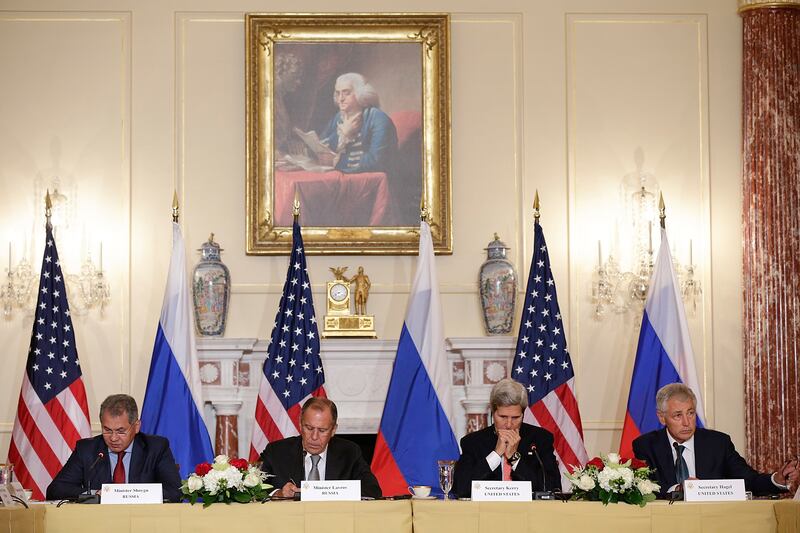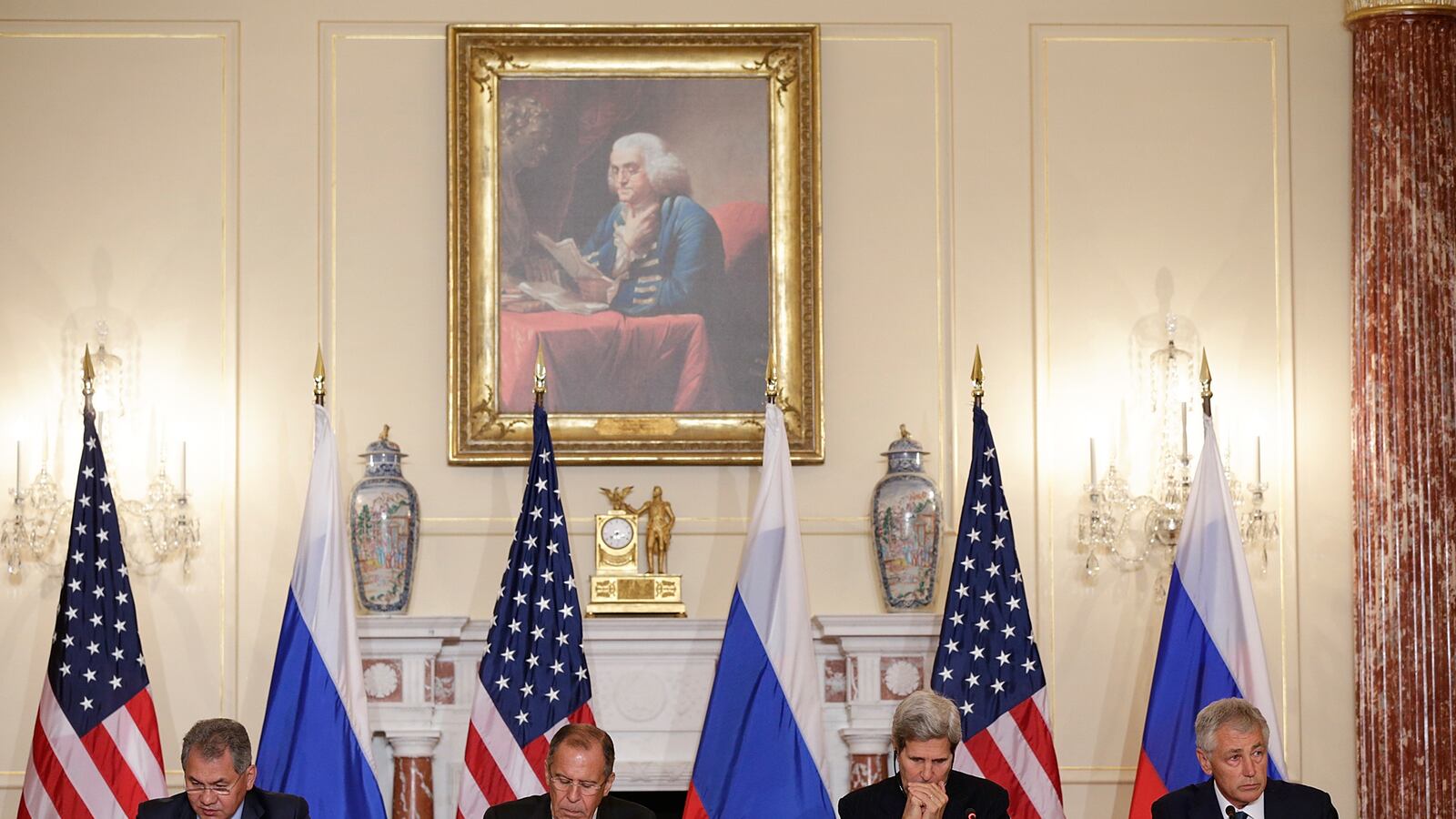Former Secretary of State Condoleezza Rice said Friday that Russia’s granting of temporary asylum to Edward Snowden was a “slap in the face” to the United States. The Obama administration now seems to be trying to turn the other cheek.

After making a big show this week of canceling the Obama-Putin summit partially due to Russia’s hosting of the rogue NSA contractor, top administration officials barely discussed Snowden and didn’t press strongly for his release during a series of bilateral meetings Friday, according to U.S. and Russian officials. Despite an entire day of high-level meetings, no progress on persuading Russia to hand over Snowden was made and officials strived to change the conversation to all of the non-Snowden aspects of the U.S.-Russia relationship.
“Keep in mind that, you know, our decision to not participate in the summit was not simply around Mr. Snowden,” President Obama said during his Friday press conference, part of a full-court administration press to downplay the U.S.-Russia dispute over the NSA leaker. “It had to do with the fact that, frankly, on a whole range of issues where we think we can make some progress, Russia has not moved. And so we don’t consider that strictly punitive.”
Though Obama would not travel to Moscow next month for a planned meeting with Putin, he will be in nearby St. Petersburg for the G-20 meeting. The White House stated that its decision was made due to Russia’s behavior on a range of issues, including missile defense and human rights—although differences with Russian on those issues never previously prompted Obama to snub Putin.
“Russia’s disappointing decision to grant Edward Snowden temporary asylum was also a factor that we considered in assessing the current state of our bilateral relationship,” the White House said.
Behind the scenes for weeks, the administration had been canceling or postponing various events as a means of pressuring Russia to extradite Snowden. After Putin decided to thumb his nose at the request, the administration has largely taken the Snowden case off the senior-level agenda.
During Friday’s “2+2” meetings between Secretary of State John Kerry, Defense Secretary Chuck Hagel, Russian Foreign Minister Sergei Lavrov, and Defense Minister Sergei Shoygu, the officials talked extensively about Syria, Afghanistan, Iran, North Korea, missile defense, economic cooperation, space exploration, and various other topics. Snowden came up once, when Kerry made a short statement about it, but that was it.
“I do not think the Snowden affair colored the engagement in the 2+2. It was discussed at the outset… We agreed to continue to move forward in areas of mutual interest,” a senior Obama administration official said Friday afternoon on a telephone conference call with reporters.
The Daily Beast asked officials whether American officials had anything substantive to say to the Russians on Snowden at all. The officials said there was little benefit in rehashing the issue.
“Our differing assessments of Snowden were aired, but this was not discussed in detail,” one official said, adding that the issue is now handled primarily through law-enforcement channels in unspecified ways.
“You would have to be living under a rock not to know what the United States’ view is on Mr. Snowden,” another official said.
The Russian officials took the administration’s lack of focus on the Snowden case as an indication that the tensions over the issue were largely in the past and the U.S. was ready to move on to other issues.
“Edward Snowden did not overshadow the discussions. This was mentioned as a fact we have on our hands,” said Lavrov after the meetings. “It’s clear that there is not a Cold War, the relationship is quite normal and we shouldn’t expect any aggravation… We don’t feel any cooling down of the temperature of the relations between the two countries.”
He said that Russia just followed Russian law when deciding to grant Snowden asylum and that Russia has no intention of changing its mind. Also, the United States regularly violates international law to deny Russia extradition of Russians held in the U.S., he said. But as for Snowden, Lavrov was of the impression the case is not that big of a deal.
“This is not a matter that could undermine or somehow threaten the general strategic stability. I don’t see even a basis to say that the Snowden issue somehow affected the mainstream negotiations and relations between the two states,” he said.
Lavrov emphasized that the Obama-Putin summit was not “canceled” but rather “postponed,” U.S. officials also said they wanted to reschedule the summit when there was more progress on security and economic issues, but not necessarily when there was progress on the Snowden issue.
Obama also claimed that he and Putin have a good working relationship, despite the bevy of evidence to the contrary and the tangible awkwardness that shows whenever the two leaders meet.
“I don’t have a bad personal relationship with Putin. When we have conversations, they’re candid. They’re blunt. Oftentimes, they’re constructive,” he said. “I know the press likes to focus on body language, and he’s got that kind of slouch, looking like the bored kid in the back of the classroom. But the truth is is that when we’re in conversations together, oftentimes it’s very productive.”





